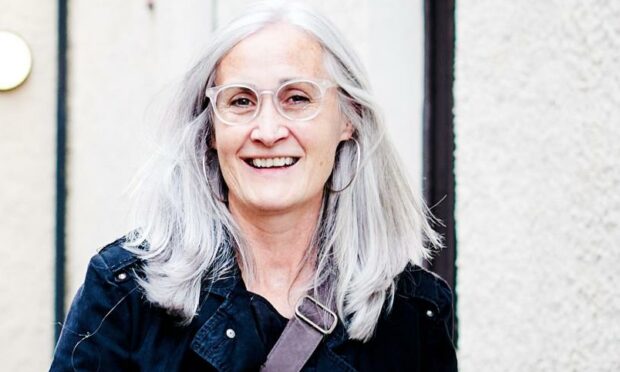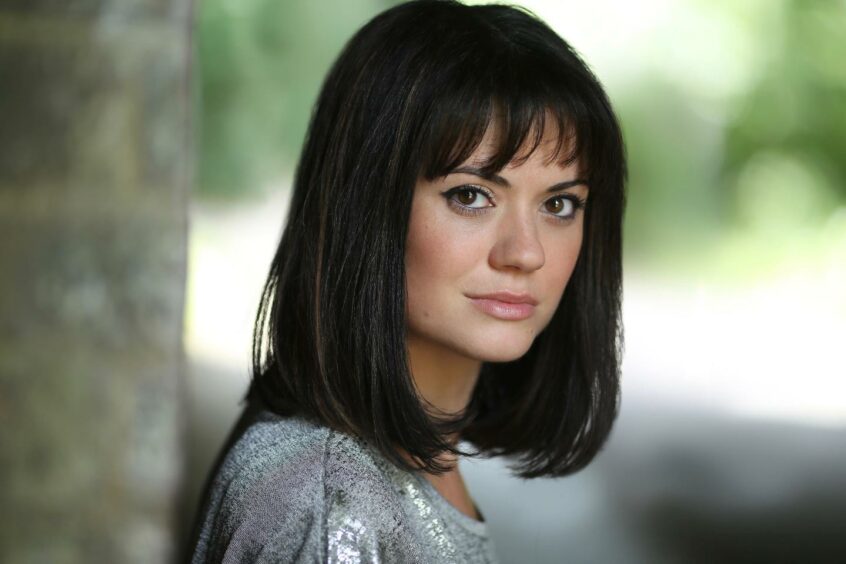Novelist and playwright Cathy Forde’s new audio drama Helping Hands was inspired by workshopping conversations with her friend, the actor Charlene Boyd.
Charlene Boyd has ended up performing in the finished piece.
The audio play is about a relationship between a young care worker and an older woman who doesn’t want to lose her independence.
Pre-pandemic, the pair were working on a play which Boyd has ended up taking on herself, but their conversations got Forde thinking about a subject close to her heart.
Something close to her heart
“We both knew these women who are quite old, maybe getting physically frail, but completely intellectually sharp and astute,” says Forde.
“They like their own houses, they like their independence and they’ve got huge personal dignity.
“The last thing they want is to have to go into a hospital – they don’t want to be investigated, they don’t want their lives to be prolonged, they don’t want treatment that’s only going to make their life harder.
The character of Hilda
“This was all pre-pandemic, and in fact, since then the whole idea of elderly people going into hospital for treatment is even worse.
“From that we were laughing and chatting and telling stories about my mum – who, when I conceived the play, was still alive, but she died during the lockdown – and Charlene’s granny, and the things they said. I ended up developing this robust older character, Hilda.
Next, the pair wondered how this older lady might be able to talk to a younger person if she lives alone.
“We came up with the idea of a care worker, and that’s where the younger woman, Rose, came from,” says Forde.
“Then when it branched off into my play, I conceived the story of Hilda realising she’d had a really bad fall and broken her hip, and would end up in the care system in hospital, or probably in a nursing home after it.”
‘I know where this is going’
“She knows that’s the last thing she wants. Her response is, ‘right, I know where this is going…’
“She knows she’s broken her hip, and the last thing she wants is for the medics to come and to take her into A&E, because that will be the end of her living at home and of her independence.
“She’ll just be an old lady on a hospital ward.”
Alongside Boyd as Rose, the great Maureen Beattie is playing Hilda.
As those who saw the Channel 4 drama Help will recognise, dramatists are taking on more stories about those who work in caring professions since the pandemic began.
For Forde, however, it was already an intensely personal subject.
Characters make the stories
“I love characters,” she says. “Anything I write always starts with creating three-dimensional characters, and I take nuggets from things I know have happened.
“My husband has early-onset Alzheimer’s, and I had no idea what support workers and care workers really were, apart from people that turned up at your house.
“I thought they just dressed you and washed you and everything, but in actual fact, it’s an extraordinary vocational occupation for the people that can do it well.
“The guys that look after my husband are incredible men, I had no idea what they were like until I became a service user myself,” she continues.
Inspired by support workers
“I would never have created the character of Rose if I hadn’t met support workers and seen the way they interact with somebody, how they try and converse with them and build a relationship.
“The character of Hilda is intellectually tip-top, Rose is really just looking after her physical needs, but I’m experiencing guys that have to look after somebody who’s absolutely helpless, and I see the extraordinary way they work with my husband.
“That’s where Rose comes from.”
‘It seems quite prescient now’
“There’s a lot in the media just now about how essential support and care workers are, and how there’s a shortage of them and the care system is suffering because they’re undervalued, and a lot of them are leaving the profession.
“It’s weird, it all seems quite prescient now, but when I was writing the play that wasn’t the situation. It feels as if it’s chiming with the mood of the times.”
Giving voices to those who need it
As well as the subject matter, Forde is happy to be giving voice to characters who might need it.
“The two women in this play are slightly invisible,” she says.
“My friends and I all joke about it, as you get older you become more anonymous, you sort of become invisible.
“But actually, nobody’s anonymous, you’ve got your past and your history. We’ve just dismantled my mum’s house and her whole life was there, every single thing channelled a memory.
“So I like celebrating people that are a bit unnoticed, it’s really important.”
- Helping Hands is available through Pitlochry Festival Theatre’s Sound Stage between Friday and Sunday November 26-28. Tickets and info at pitlochryfestivaltheatre.com



